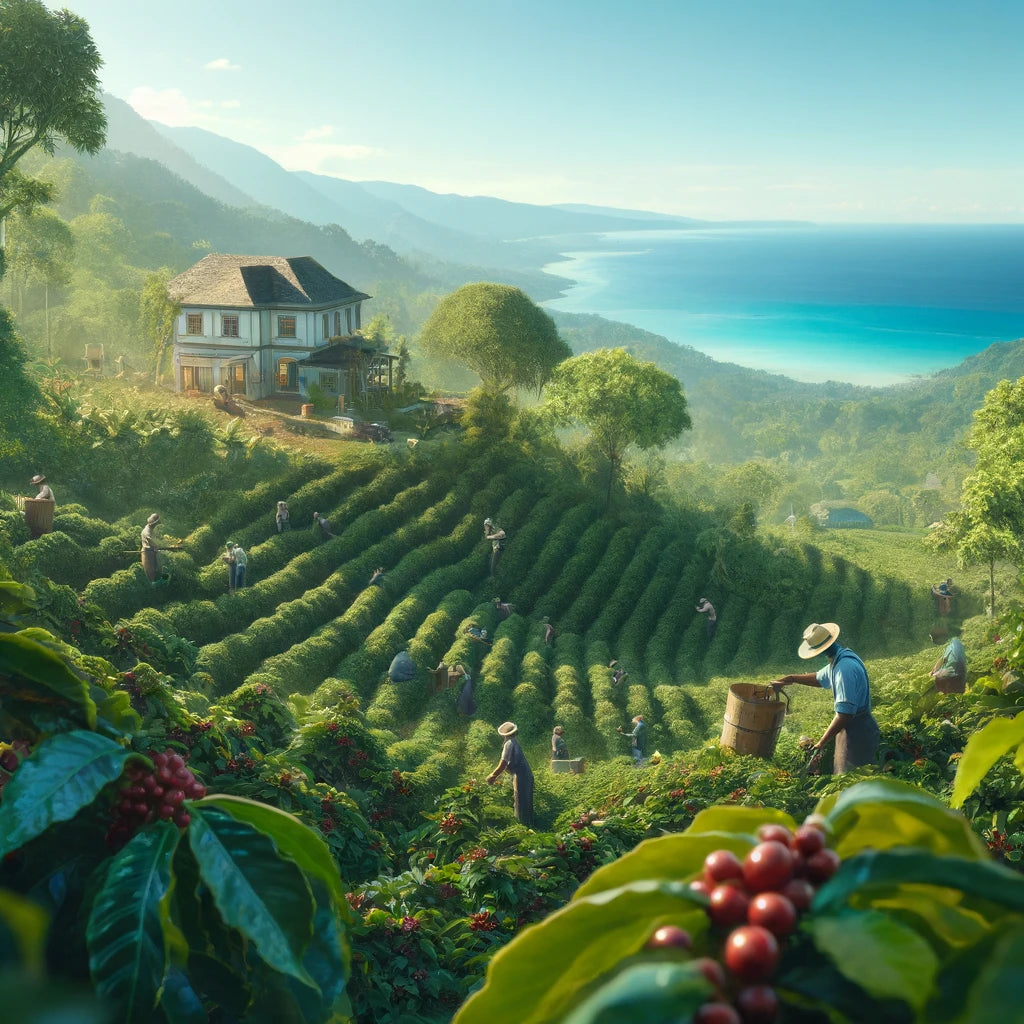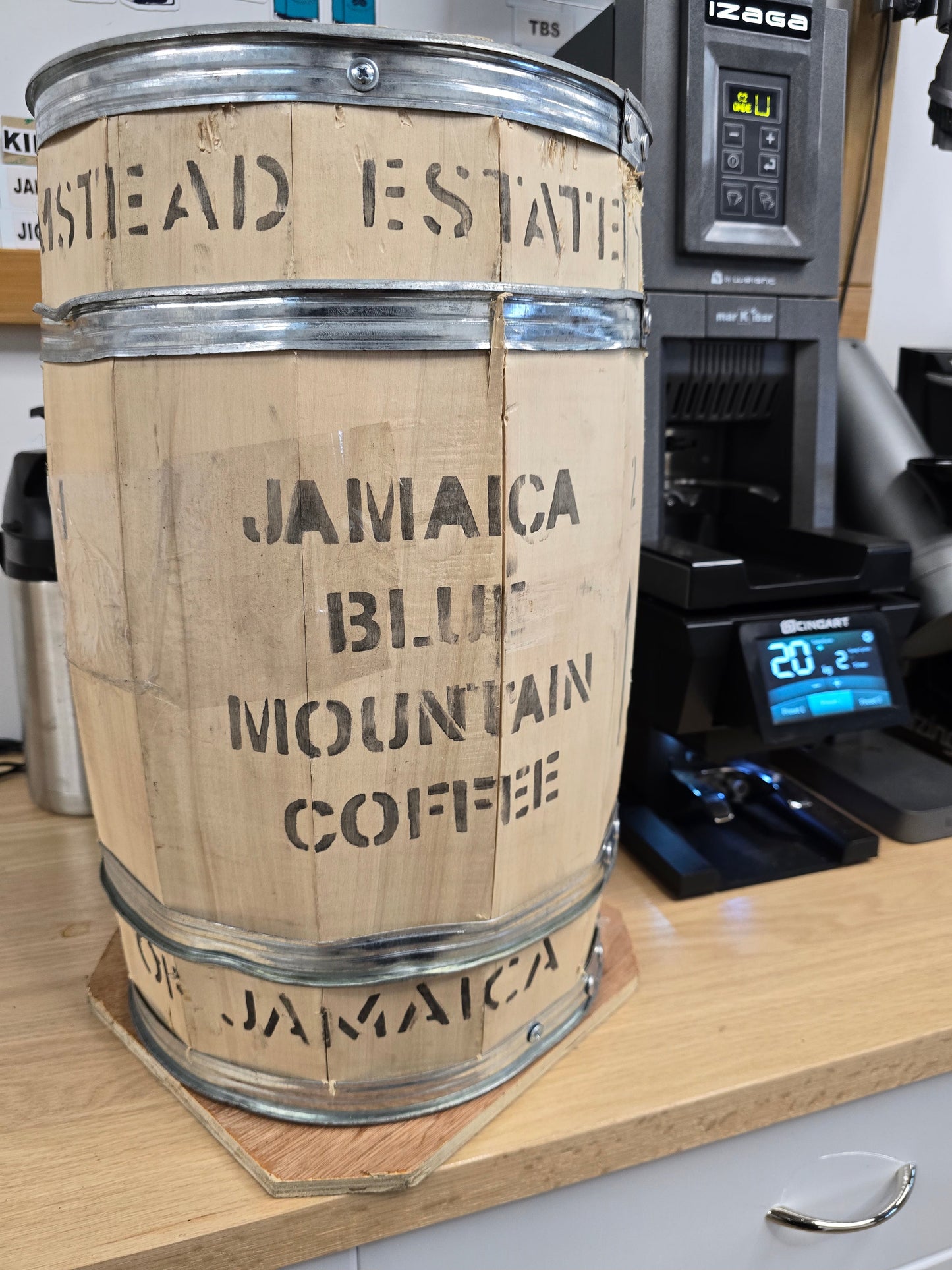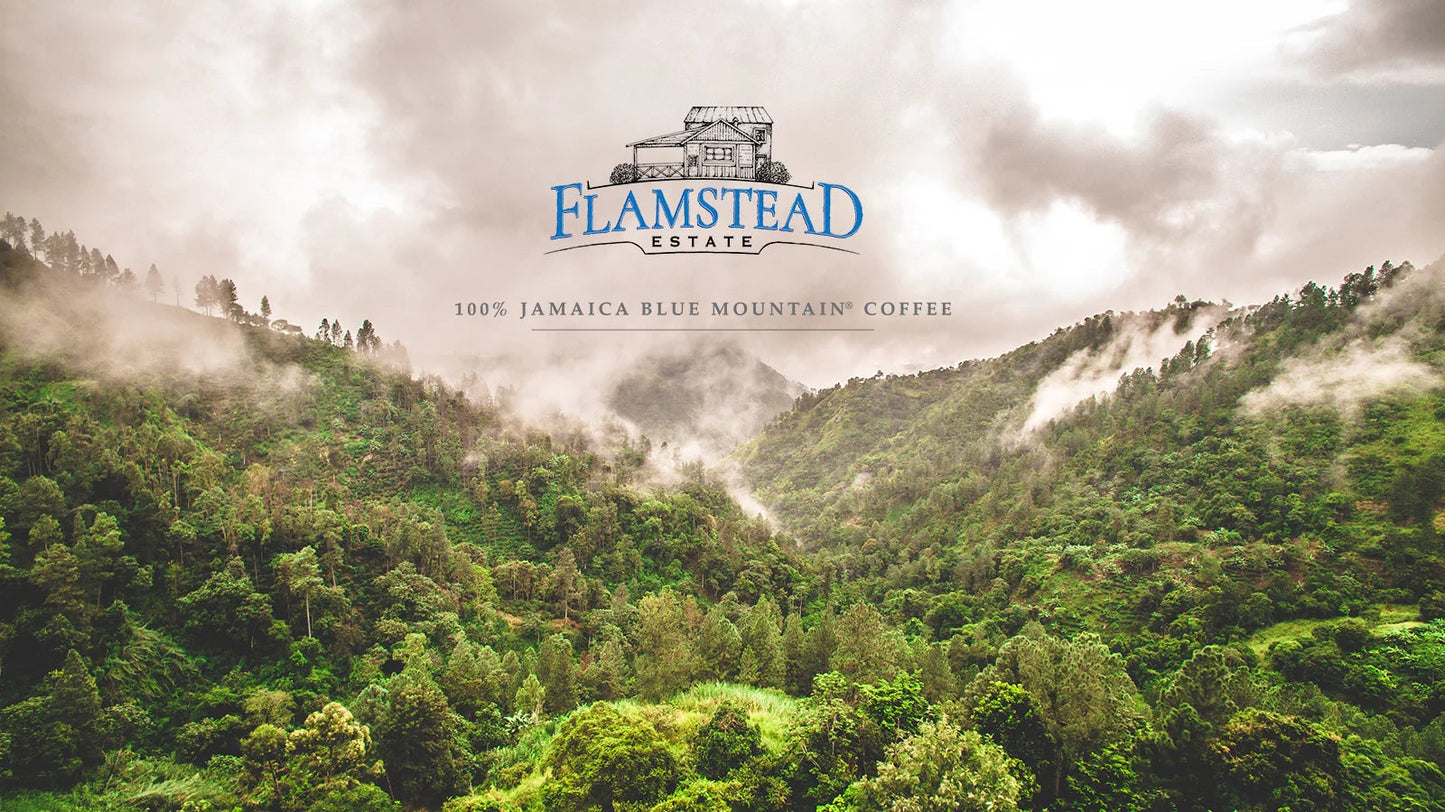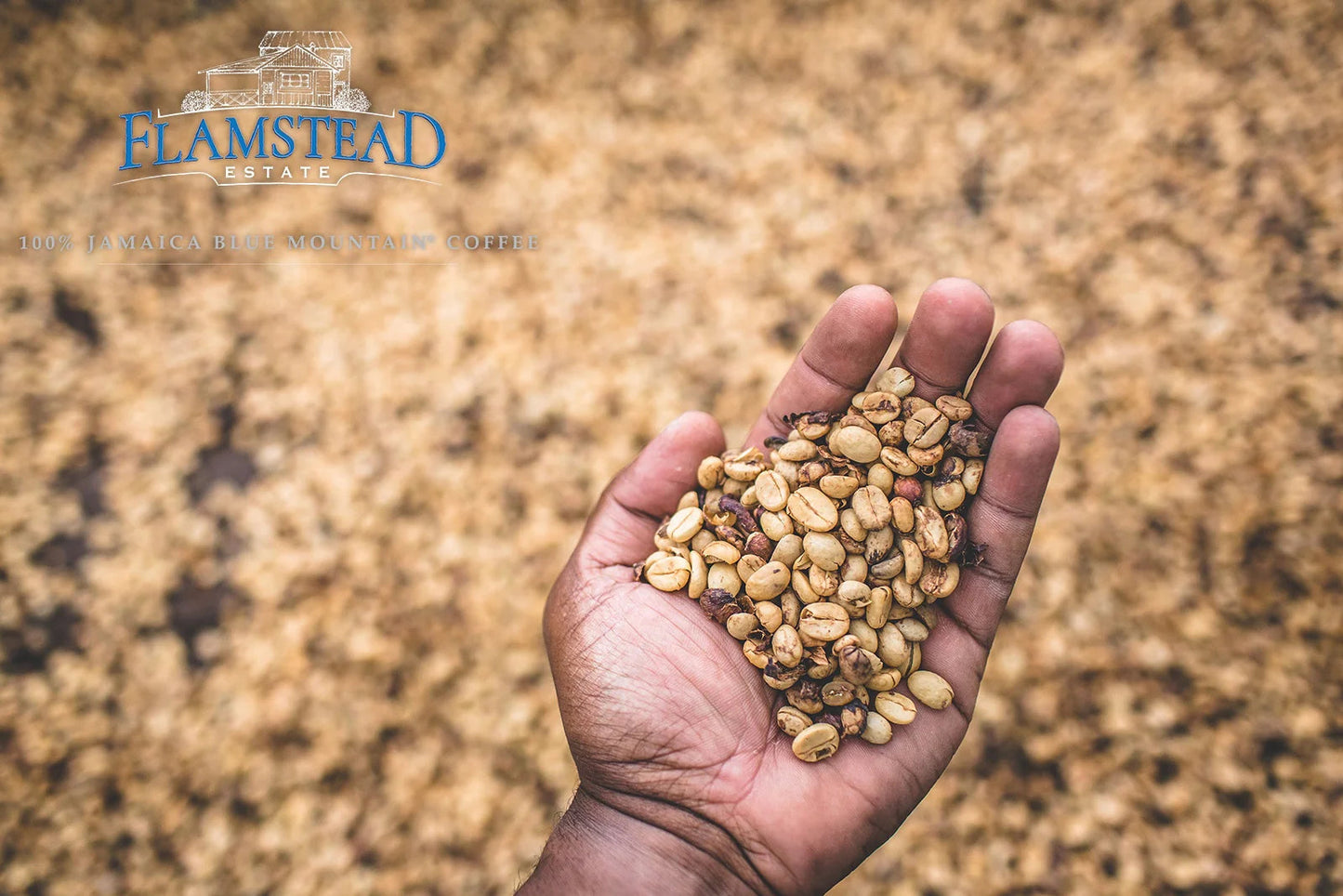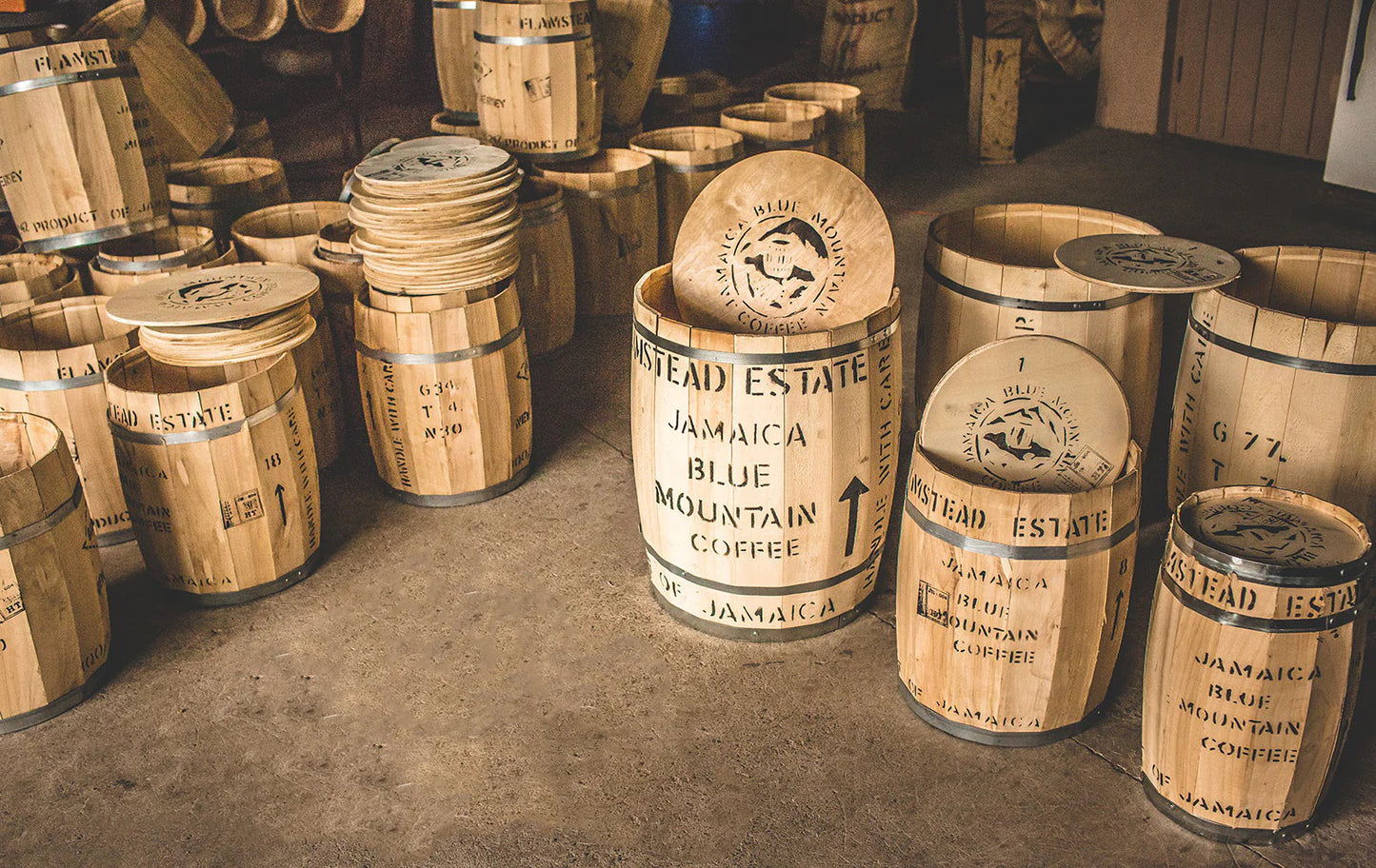Are you looking to buy Jamaica Blue Mountain | Flamstead Estate| Peaberry Grade 1 Washed in Australia?
SCA Score: 84+
Suitable with Milk? YES
Roast Level: Medium Light
AGTRON: 70
Roasted Level Suits: Filter
Farm: Flamstead Estate
Region: St Andrew Parish
Certifications: Grade 1 JACRA Certified Blue Mountain Coffee
Screen Size: 13 Up
About Flamstead Estate
Coffee production at Flamstead, located in St. Andrew, Jamaica, was first recorded in 1764 and quickly became a favorite within the British Empire. Over the years, various British governors owned portions of the estate, enjoying the premium quality of its coffee. In 1982, Ambassador Carlyle Dunkley, founder and Chairman of Blue Mountain Coffee Venture Limited (BMCV), acquired part of the Flamstead property and began coffee farming.
Today, his sons, Stephen and Graham, manage the company, continuing its legacy of excellence. Their hands-on approach ensures that Flamstead Estate stands out in every step of the coffee production process, from plant to cup.
In 2000, BMCV installed a modern coffee pulpery at Flamstead, allowing cherries to be pulped the same day they are picked. The facility uses minimal water during processing to conserve resources. After pulping, the beans are sun-dried on elevated wooden trays, where they are carefully monitored and frequently turned to avoid overexposure or damage. One expert with over 20 years of coffee drying experience praised the handling of the parchment coffee as “excellent, almost like handling a baby.”
At the estate's dry mill, state-of-the-art equipment and dedicated staff oversee the sorting of beans by size and density. Afterward, beans are hand-sorted to remove any defects. The coffee undergoes a thorough internal inspection before being packaged in wooden barrels and sent to the Jamaica Agricultural Commodities Regulatory Authority (JACRA) for final evaluation.
Flamstead Estate is also dedicated to environmental responsibility by:
- Practicing sustainable agriculture to conserve water and soil
- Harvesting rainfall
- Recycling water
- Reusing tires to build retaining walls
- Reusing paper and cardboard
- Composting coffee pulp
- Creating wetlands for native wildlife
- Planting native trees
- Additionally, BMCV has supported local community efforts, including aiding the recovery of Guava Ridge Basic School after Hurricane Beryl. When the school lost its roof and suffered other damage, Stephen and two local companies contributed materials and labor, allowing classrooms to reopen.
-
About Geisha
Geisha (also known as Gesha) is celebrated for its exceptional cup quality, particularly when grown at high altitudes. This variety originates from Ethiopian landrace coffees, having been collected from Ethiopian coffee forests in the 1930s. Its name is believed to come from Ethiopia’s Gori Gesha forest.There has been some confusion due to several genetically distinct varieties being referred to as Geisha, but the most famous is the Panama Geisha. This variety was first brought to the Lyamungu research station in Tanzania and later to the Centro Agronómico Tropical de Investigación y Enseñanza (CATIE) in Central America in 1953, where it was logged as T2722. In the 1960s, CATIE distributed T2722 throughout Panama, initially for its resistance to Coffee Leaf Rust (CLR). However, its fragile branches limited widespread planting.
Panama Geisha gained global recognition in 2005 when a Geisha lot won the “Best of Panama” competition, setting a record price of over $20 per pound. DNA analysis confirmed that Panama Geisha, descended from T2722, is genetically distinct and uniform. Today, it is cherished for its delicate floral notes, jasmine, and stone fruit flavors.
About Typica
Typica is one of the most renowned coffee varieties, recognized for its tall stature, low yield, vulnerability to major diseases, and exceptional cup quality. Like all Arabica coffee, Typica is believed to have originated in southwestern Ethiopia. By the 15th or 16th century, it made its way to Yemen, and by 1700, seeds were cultivated in India. In 1696 and 1699, coffee seeds traveled from India's Malabar coast to Batavia (now Java, Indonesia), giving rise to what we now know as the distinct Typica variety.
In 1706, a single Typica plant was transported from Java to Amsterdam's botanical gardens, and by 1714, it was shared with France. The Netherlands played a key role in spreading Typica, sending it to Dutch Guiana (now Suriname) in 1719, Cayenne (French Guiana) in 1722, and northern Brazil by 1727. It arrived in southern Brazil between 1760 and 1770. Paris also sent Typica plants to Martinique in 1723, and from there, the English introduced it to Jamaica in 1730. By 1735, Typica reached Santo Domingo, and from there, seeds spread to Cuba in 1748, eventually reaching Costa Rica in 1779 and El Salvador by 1840.
By the late 18th century, Typica was cultivated throughout the Caribbean (Cuba, Puerto Rico, Santo Domingo), Mexico, and Colombia, before spreading across Central America. Until the 1940s, it dominated coffee plantations in South and Central America. However, due to its low yield and disease susceptibility, Typica has gradually been replaced in much of the Americas. Despite this, it is still widely grown in Peru, the Dominican Republic, and Jamaica, where it is known as Jamaica Blue Mountain.
Coffee in Jamaica
The Blue Mountain region of Jamaica is renowned for producing some of the finest coffee in the world. The area’s high altitudes, cool climate, abundant rainfall, misty conditions, and nutrient-rich soil create ideal conditions for coffee cultivation.
However, these mountainous conditions, while contributing to the coffee's exceptional quality, also make harvesting more challenging and costly. The cooler, wetter climate complicates the drying process, emphasizing the need for meticulous processing, sorting, and drying to maintain the coffee’s high standards.
SKU: jbm-flamstead-160g
Package Weight: 250g
How does my coffee come packaged?
Despite some of our product images looking very fancy our coffee is packaged into a plain brown paper foiled lined bag with a Swiss WIPF degassing valve. This offers superior oxygen and moisture protection. We recommend once you crack the seal you store your coffee in AirScape containers or Weber Workshop Bean Cellars for a single dosing option.
You can also freeze/vacuum seal in small lots, then use straight away once removed from freezer.
We don't have fancy printed bags with ziplocks (more plastic), we save that cost and buy better quality green beans so you can focus on your cup quality instead of fancy marketing and artwork.







